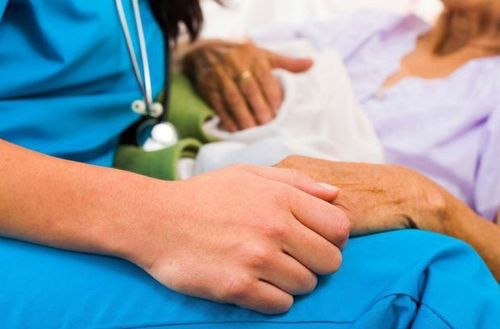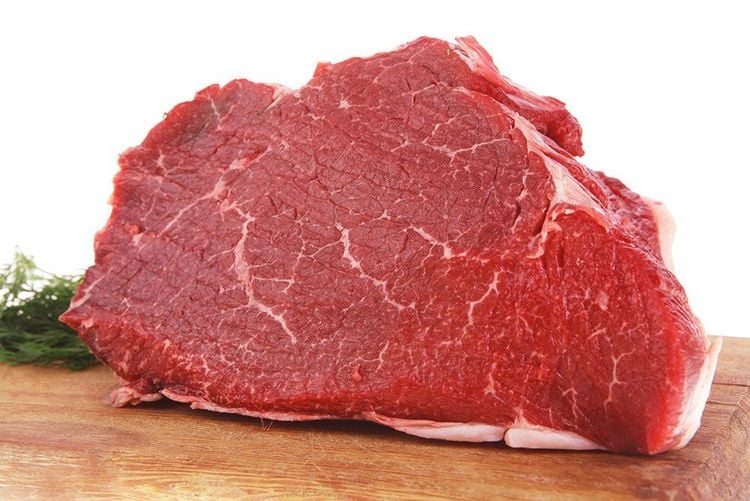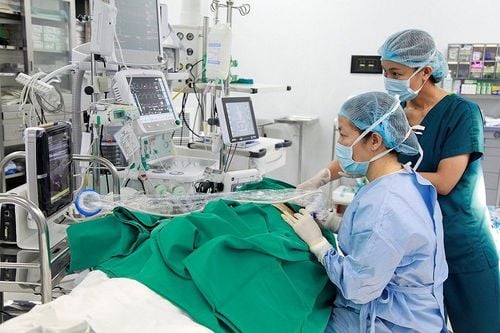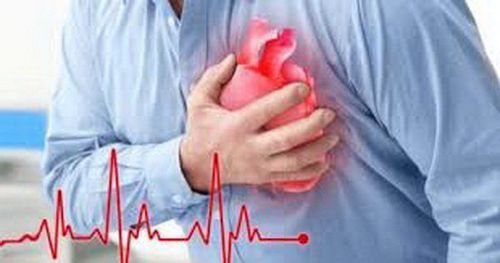This is an automatically translated article.
The article was professionally consulted with Cardiologist - Cardiovascular Center - Vinmec Central Park International General Hospital.How to care for patients after heart valve replacement is one of the important steps in the postoperative period, determining the successful outcome of the treatment. In particular, many patients still have many doubts about what to eat after mitral valve surgery to return to daily life soon and maintain the life of the prosthetic valve.
1. General principles when taking care of patients after heart valve replacement
Along with the mitral valve surgery method, the experience of the surgeon and the care of patients after heart valve replacement plays an important role in improving the patient's health, which further emphasizes the benefits of heart valve surgery. subsequent patient care.Anticoagulation is mandatory for the rest of life if the patient is indicated for mechanical mitral valve replacement. The main role of anticoagulation in this case is to prevent the formation of thrombus that form in the prosthetic leaflets. After the appearance of a blood clot, it can be a potential cause of embolism, a blood clot that travels through the blood to the small blood vessels. Myocardial infarction and ischemic stroke are two of many dangerous complications, which can be life-threatening.

Chăm sóc người bệnh sau phẫu thuật có vai trò hết sức quan trọng
The patient should be informed by the doctor about the danger signs that need to be re-examined, if any, including:
Fresh blood in the stools with black stools or stools, bad smell Nosebleeds or bleeding gums Natural bleeding show many bruises on the skin Blood in urine If the patient is female, heavy and prolonged menstrual bleeding Chest pain Shortness of breath Restriction of movement After surgery, in addition to the use of anticoagulants, if encountered If there are any health problems, patients need to visit a medical facility to be prescribed appropriate treatment. Self-medication while taking anticoagulants is a very dangerous thing to do.
The construction of a reasonable diet also plays a very important role, determining the quality of life and the occurrence of possible complications. The patient should have a balanced diet, complete with nutrients, based on an understanding of the foods that should and should not be used in patients with mitral valve surgery.

Bệnh nhân cần xây dựng chế độ dinh dưỡng phù hợp sau khi phẫu thuật
2. What to eat after mitral valve surgery?
The basic principle when taking care of patients with mitral valve surgery is to provide a diet full of nutrients to meet the needs of daily life while limiting certain foods. separate. Foods that should be supplemented for patients with mitral valve surgery include:Vitamins and fiber: Constipation is a common condition that occurs in patients with general surgery and mitral valve surgery. private. Therefore, adding more fiber and vitamins in the diet is the first thing to do after mitral valve surgery. Fruits and vegetables are foods rich in fiber and vitamins. In addition, these two groups of substances also play a role in promoting disease recovery and preventing cardiovascular complications after surgery. Unsaturated fats: Patients undergoing mitral valve surgery should be prevented from other cardiovascular diseases, including atherosclerotic disease. Fat is an indispensable group of substances in the diet because it provides a lot of energy to meet the body's activities. Using unsaturated fat instead of saturated fat is a reasonable method to balance between providing energy for the body and reducing blood cholesterol. Some foods rich in unsaturated fats are vegetable oils, almonds, and walnuts. Protein: This is one of the three basic groups of substances needed by the human body. If choosing to supplement with animal-based protein, patients should prioritize lean meat and remove fat to reduce cholesterol levels in the blood. Similarly, if you drink milk to supplement protein, patients should not choose fatty milk.

Nên ưu tiên bổ sung chất đạm từ thịt nạc bỏ mỡ để giảm nồng độ cholesterol trong máu
3. Foods that should not be used after mitral valve surgery
After mitral valve surgery, patients have a variety of foods that should be avoided including:Foods high in vitamin K: Although eating small amounts of vitamin K-rich foods in a person's diet Anticoagulants will not cause serious problems, but avoid consuming large amounts of foods rich in vitamin K, as they will reduce the effectiveness of anticoagulants. Foods with high vitamin K content include: kale, spinach, Brussels sprouts, mustard greens, green lettuce, collard greens, broccoli, asparagus, parsley, ... About drinks , green tea contains a lot of vitamin K and can reduce the effectiveness of anticoagulants Salt: Salty dishes such as fish sauce, pickled cucumber, canned fish meat should not be on the menu of surgical patients. mitral valve surgery. Excess salt intake increases the risk of developing high blood pressure. This is a disease that can worsen the patient's health condition. The heart with the defect just repaired is put under more pressure if the blood pressure reading is high. Carbohydrates: Patients should limit foods high in carbohydrates because they have the potential to increase blood cholesterol levels. Many studies have shown that the ability of carbohydrates to raise blood cholesterol is equivalent to saturated fats of animal origin. Carbonated drinks, cakes, candies, jams should be limited in patients after mitral valve surgery. Saturated fats: A group of substances often derived from animal fat should be limited because they increase cholesterol levels in the blood, leading to the formation of plaque in the blood vessels and serious cardiovascular diseases. other. Saturated fat can easily be found in high amounts in processed foods, fast foods such as hamburgers, pizza, instant noodles. Alcoholic beverages: Some studies indicate that the daily amount of alcoholic beverages should not exceed 2 drinks. However, for patients with mitral valve surgery, it is advisable to stop using alcoholic beverages. Classified as stimulants, they can cause heart rhythm disturbances, increase heart rate, and put pressure on previously unhealthy heart valves.
To protect cardiovascular health in general and detect early signs of myocardial infarction and stroke, customers can sign up for Cardiovascular Screening Package - Basic Cardiovascular Examination of Vinmec International General Hospital . The examination package helps to detect cardiovascular problems at the earliest through tests and modern imaging methods. The package is for all ages, genders and is especially essential for people with risk factors for cardiovascular disease.
Please dial HOTLINE for more information or register for an appointment HERE. Download MyVinmec app to make appointments faster and to manage your bookings easily.













